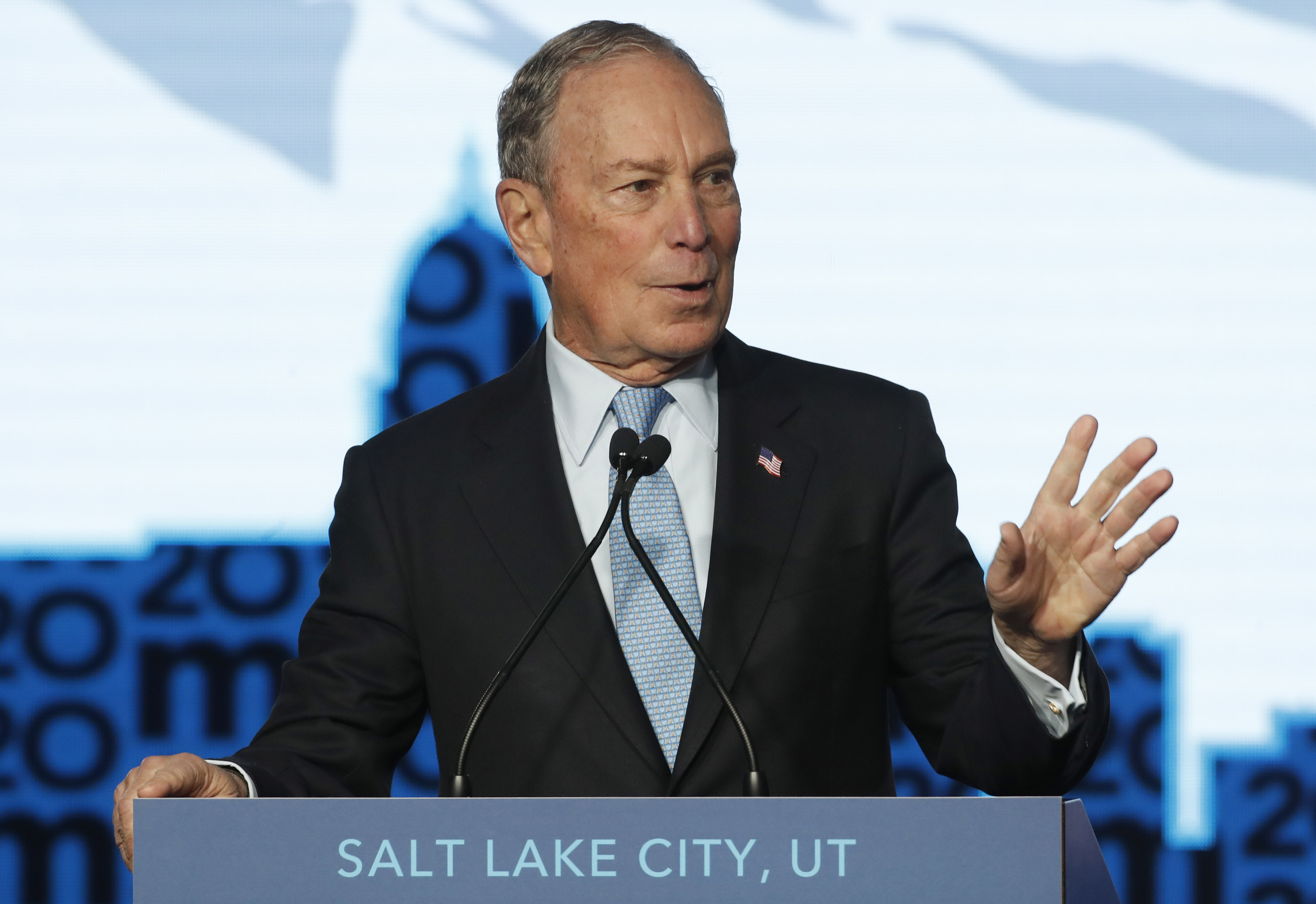Is It Possible to Bully A Presidential Candidate? What About A Billionaire?

Credit to Author: Harron Walker| Date: Thu, 27 Feb 2020 12:35:42 +0000
For the past two weeks, some unidentified individuals have been tagging Michael Bloomberg’s campaign offices with words like “racist,” “sexist,” “corporate pig,” and “oligarch.” The billionaire former Mayor of New York City, who has spent over $500 million on his presidential campaign thus far, has blamed the graffiti on supporters of the current Democratic frontrunner, Vermont Sen. Bernie Sanders, despite having zero evidence to back up those claims.
“The kind of divisive and hateful rhetoric and action we are seeing from Bernie Sanders' supporters has no place in our politics," Holly McCall, Bloomberg’s campaign representative in Tennessee, told a local CBS affiliate after the Knoxville office got tagged. "Over the past week, we've seen similar attacks against Mike Bloomberg 2020 offices in multiple states. Mike Bloomberg believes Democrats need to unite to defeat Donald Trump in November, and as president, he will bring our country together."
Does this count as “hateful rhetoric,” as McCall put it, or “intimidation,” as Bloomberg national campaign manager Kevin Sheekey has described it? Putting aside the question of who tagged the buildings in the first place, the campaign’s assertion rests on on the idea that a private citizen could intimidate one of the most powerful men in the world with some paint and a handful of choice words that accurately, if bluntly, sum up the harm that Bloomberg has enacted while in office.
To claim that this graffiti is a form of hate speech or bullying paints a prominent politician like Bloomberg—who also happens to be the ninth richest person in the world—as the victim of someone presumably far less powerful than he is. For this to work, calling a racist oligarch a “racist oligarch” would require racist oligarchs to be considered an oppressed class. Is there any stretch of the imagination by which this can work?
“It is not possible to bully a presidential candidate,” P.E. Moskowitz, a journalist who authored 2019’s The Case Against Free Speech: The First Amendment, Fascism, and the Future of Dissent, explained to VICE. “What all of these conversations [about bullying and harassing presidential candidates] ignore is the question of power. Bullying, to me, hinges on a power dynamic. Let’s go back to what bullying meant when we only used the term to describe what children did to each other at school. If a strong, powerful kid throws a queer kid into a locker, that’s bullying.”
Moskowitz (who, full disclosure, is an ex of mine) said that this 100-percent accurate graffiti is merely a form of public criticism, something that every politician running for office should expect, no matter how much they don’t like what they hear. This would change if the graffiti had been racist, a sexist slur, or some other form of hate speech, as that could negatively impact every member of the oppressed class targeted by that particular slur, not to mention encourage violence against them—but again, “racist oligarch” is not a slur. Slurs hurt their intended targets because they carry the weight of a history of oppression with them. Racist oligarchs don’t have a history of oppression—in fact, they’re the ones doing the oppressing!
Not only do the terms “racist” or an “oligarch” fail the oppression test, but when it comes to Bloomberg, they are statements of fact. As Mayor of New York, Bloomberg did oversee policies that disproportionately targeted Black people, Muslims, and other people of color. He is an oligarch—meaning, someone who is able to rule over others thanks to his immense wealth; if that doesn’t describe a multi-billionaire who has literally bought his way into an election that no clear majority of people want him to be a part of, I don’t know what does.
Bloomberg may not like that someone is saying such accurately negative things about him, but as a powerful person, he cannot be oppressed by this language. The only victims are those who were harmed by the former Mayor’s racist policies, like the people of color who were disproportionately stopped and frisked, or the Muslim communities surveyed by the NYPD.
Claiming victimhood after being criticized for these actions obscures the very violence that Bloomberg is responsible for. It’s a perfect example of overstating harm in order to avoid accountability, a common response to conflict explored by author Sarah Schulman in 2016’s Conflict Is Not Abuse: Overstating Harm, Community Responsibility, and the Duty of Repair. By conflating “racist” and “oligarch” with “hateful rhetoric,” Bloomberg’s campaign is trying to make the former Mayor out to be a victim of trash-talking bullies in order to glean support from his more well-liked competitors’ bases, while simultaneously decontextualizing those words from the racist government policies and exploitation inherent to such obscene wealth accumulation from which they sprang.
It’s like what journalist Hamilton Nolan wrote in a 2018 op-ed for Splinter: “When you aggressively fuck with people’s lives, you should not be surprised when they decide to fuck with yours.”
Personally, I’ve only received antagonistic tweets from supporters of Pete Buttigieg who hated the critical profile I wrote about the South Bend, Ind., Mayor for Out’s print magazine back in May. But I wouldn’t call that bullying. I’m a writer who makes public work, which invites scrutiny and criticism from others who don’t have my platform, however minuscule it might be in comparison to Michael Bloomberg’s. Yes, it can suck to see my mentions full of tweets telling me that I’m “a hack” or that something I wrote is “shitty,” but the mute button is right there. I suggest that Bloomberg and his similarly powerful Democratic rivals find it.
Sign up for our newsletter to get the best of VICE delivered to your inbox daily.
Follow Harron Walker on Twitter .
This article originally appeared on VICE US.